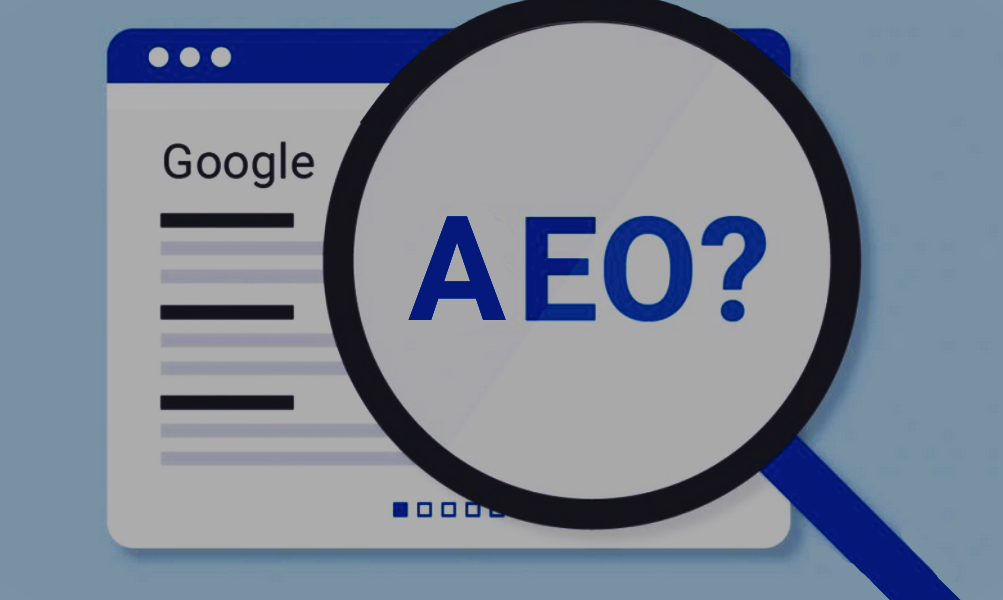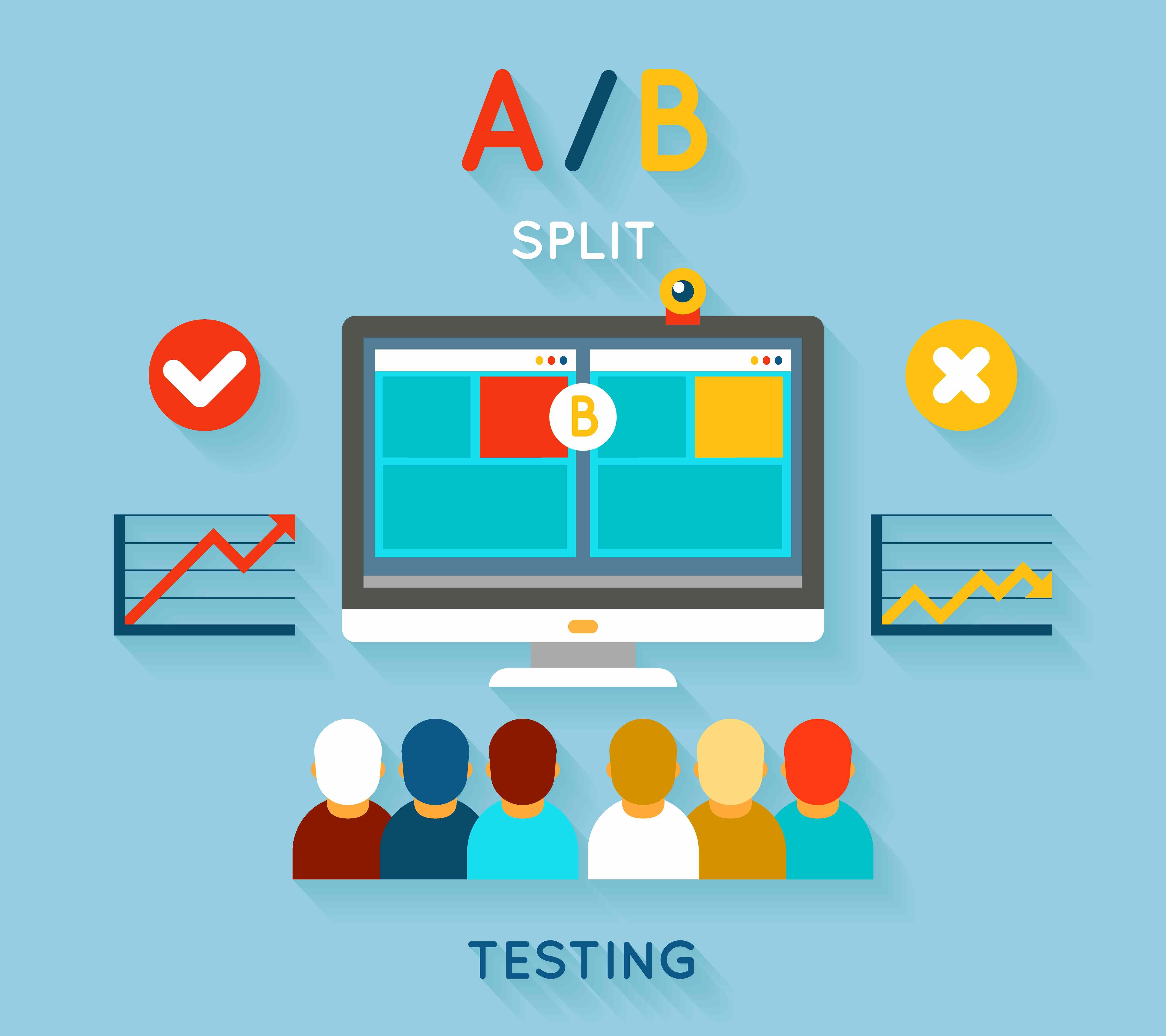
In an age wherein statistics is frequently hailed as the brand new oil, the intersection of statistics privateness and synthetic intelligence (AI) has turned out to be one of the maximum essential problems of our time. As AI keeps permeating each aspect of our lives, from healthcare and finance to amusement and social interactions, it increases profound questions on how our private facts are collected, used, and protected. This article delves into the complicated courting among statistics privateness and AI, exploring the challenges, moral considerations, and capability answers that could assist make sure a destiny wherein generation serves humanity without compromising our essential rights.
The fast development of the era in the twenty-first century has added with it an unheard-of potential to collect, process, and examine records on a scale that became formerly unimaginable. At the coronary heart of this technological revolution is synthetic intelligence (AI), which is predicated closely on large quantities of records to characteristic effectively. As AI systems are more today and included in our normal lives, the importance of records` privacy has come into sharp focus.
Data privacy refers to the rights of humans to control how their non-public facts are collected, used, and shared. It is an essential component of human rights and virtual ethics. In contrast, AI, with its insatiable urge for food for records, frequently operates in approaches that may assign those privacy principles. The anxiety among the want for records to gasoline AI and they want to shield private privateness is one of the defining demanding situations of our time.
This article will discover the elaborate courting among records privateness and AI, inspecting the potential dangers and moral dilemmas posed through AI technologies, in addition to the regulatory frameworks and technological answers that may assist guard our privateness inside the virtual age.
Data privacy isn't always a brand-new idea. Its roots may be traced returned to historical instances whilst the safety of private records turned frequently related to the idea of private safety and dignity. In extra current instances, statistics privateness has become a formalized idea with the arrival of mass verbal exchange technologies, which include the telegraph and telephone, which raised issues approximately the unauthorized interception of personal communications.
The first felony protections for statistics privateness started to emerge in the early twentieth century, with the advent of legal guidelines aimed toward stopping the unauthorized disclosure of private records. One of the earliest examples is the 1890 Harvard Law Review article through Samuel Warren and Louis Brandeis, which is frequently credited with laying the inspiration for the proper privateness inside the United States. This article argued for the "proper to be permitted alone," a precept that might later be pondered in privateness legal guidelines across the world.
As the generation endured to evolve, so too did the idea of statistics privateness. The introduction of computer systems and the net in the latter 1/2 of the 20th century added new demanding situations and possibilities for statistics privateness. The capacity to keep and technique significant quantities of records electronically raised issues approximately how non-public statistics turned into being collected, used, and shared, mainly to the improvement of extra state-of-the-art statistics privateness legal guidelines and regulations.

In today`s virtual age, facts privateness issues have come to be greater complicated and widespread. With the proliferation of smartphones, social media, and online offerings method people are continuously producing and sharing facts, frequently without a clear expertise of the way their data is being used. This has brought about developing issues approximately the capability for misuse of private facts, especially within the context of AI.
Modern facts privacy issues are frequently targeted around troubles inclusive of facts breaches, identification theft, and the unauthorized sharing of private data. Additionally, there's growing attention to the approaches wherein facts may be used to govern behavior, inclusive of via-centered marketing and marketing or political campaigns. These issues have triggered more potent facts privateness protections and more transparency in how facts are amassed and used.
Artificial Intelligence (AI) refers back to the simulation of human intelligence in machines that can be programmed to suppose and learn. These machines, frequently known as AI structures or agents, can carry out obligations that usually require human intelligence, together with spotting speech, making decisions, fixing problems, or even developing art.
AI may be classified into huge types: slender AI and well-known AI. Narrow AI, additionally referred to as susceptible AI, is designed to carry out a particular mission, together with voice popularity or photograph classification. These structures are notably specialized and may frequently carry out their precise mission with extra performance than humans. Examples of slender AI consist of digital assistants like Siri or Alexa, advice algorithms utilized by Netflix or Amazon, and self-using cars.
On the opposite hand, well-known AI, additionally referred to as robust AI, refers to machines that own the capacity to understand, learn, and follow intelligence throughout a huge variety of obligations, much like a human being. While well-known AI stays in large part theoretical at this stage, it represents the remaining intention for lots of AI researchers.
AI may be in addition categorised into numerous sorts primarily based totally on their abilities and the complexity of responsibilities they are able to perform:
Reactive Machines: These are the maximum simple styles of AI structures that can react to particular inputs with predetermined outputs. They do now no longer have reminiscence or the capacity to analyze from beyond reports. An instance of that is IBM`s Deep Blue, a chess-gambling AI that would compare positions on a chessboard and make selections without studying from preceding games.
Limited Memory: These AI structures can be used beyond reports to tell destiny selections. Most of the AI structures we engage with today, which include self-riding cars, fall into this category. They examine beyond records to make real-time selections.
Theory of Mind: This sort of AI, which remains inside the studies stage, includes knowledge emotions, beliefs, and intentions. It pursuits to permit machines to engage extra evidently with human beings with the aid of using knowledge and responding to social cues.
Self-Aware AI: The maximum superior shape of AI, which stays theoretical, might contain machines that own an experience of self-focus and consciousness. Such AI might have the capacity to recognize its very own country and use that knowledge to tell its actions.
AI is being carried out throughout numerous industries, from healthcare and finance to transportation and entertainment. In healthcare, AI is used for diagnosing diseases, personalizing remedy plans, or even predicting affected person outcomes. In finance, AI powers algorithmic trading, fraud detection, and customized economic advice. In transportation, AI is in the middle of independent vehicles, optimizing routes, and enhancing safety.
Data is the inspiration upon which AI structures are built. Without facts, AI can not function. The more facts an AI machine has to get entry to, the higher it can examine and make correct predictions. This is especially proper for device learning, a subset of AI that includes education algorithms on big datasets to understand styles and make decisions.
In the context of AI, facts can come from a whole lot of sources, along with sensors, cameras, microphones, and consumer interactions. For example, a self-riding automobile is predicated on facts from cameras, radar, and LIDAR to navigate roads and keep away from obstacles. Similarly, an advice machine like Netflix makes use of facts on viewing behavior to signify new indications and movies.
The nice and amount of facts play a crucial position in the overall performance of AI structures. High-nice facts this is correct and relevant, and numerous permits AI structures to make greater knowledgeable decisions. On the other hand, poor-nice facts can cause biased or wrong outcomes, highlighting the significance of right facts control and curation.
The upward push of large records has been a riding pressure in the back of the current improvements in AI. Big records refer back to the huge volumes of records generated via way of means of virtual activities, which include social media posts, online transactions, and sensor readings. This record is frequently unstructured and calls for state-of-the-art algorithms to technique and analyze.
Machine mastering, a key issue of AI, is specifically well-desirable for dealing with large records. Machine mastering algorithms analyze records via way of means of figuring out styles and making predictions primarily based totally on the one's styles. The greater the records those algorithms are uncovered to, the higher they come to be at spotting styles and making correct predictions.
However, the reliance on large records additionally increases widespread privacy concerns. As greater records are amassed and analyzed, there may be an improved chance of touchy records being uncovered or misused. This has brought about development that requires greater sturdy record privacy protections in the age of large records and AI.
One of the number one methods AI influences information privacy is through the gathering and surveillance of private information. AI structures frequently require substantial quantities of information to characterize effectively, mainly to the gathering of private facts on an extraordinary scale. This information can encompass the whole lot from area and surfing records to biometric information like facial popularity and fingerprints.
Surveillance technology powered with the aid of AI, consisting of facial popularity and video analytics, has raised good-sized privacy concerns. These technologies can music people's movements, become aware of them in public spaces, or even expect their behavior. While those competencies may be beneficial for regulation enforcement and safety purposes, in addition, they pose a good sized hazard to men's or women's privacy, especially whilst used without consent or oversight.
The use of AI in surveillance has caused the emergence of what a few students have termed the "surveillance society," wherein people are continuously monitored, and their information is used to influence their behavior. This has sparked debates approximately the moral implications of surveillance and the want for more potent prison protections to protect privacy.
AI`s cap potential to the system and examine great quantities of records additionally has widespread implications for privateness. Advanced AI algorithms can examine records to become aware of patterns, make predictions, and draw conclusions that won't be at once apparent. While this will be pretty effective for packages like scientific diagnostics and monetary forecasting, it additionally increases worries approximately the ability to misuse records.
For example, AI may be used to research social media pastimes and online conduct to create targeted profiles of individuals, which include their interests, preferences, or even political views. These statistics can then be used for focused advertising, political campaigns, or maybe to control conduct. The use of AI for such functions has raised worries approximately the ability for invasion of privacy and the want for extra transparency in how records are processed and used.
The sharing of records among businesses is every other vicinity wherein AI influences privateness. Many AI structures rely upon records amassed via way of means of 1/3 parties, along with social media platforms, online retailers, or records brokers. These records are regularly shared without the express consent of individuals, elevating issues approximately the ability for misuse.
Data breaches, wherein non-public facts are uncovered or stolen, are every other sizeable privacy hazard related to AI. As AI structures emerge as incorporated into important infrastructure and services, the ability effect of records breaches turns even greater severe. The loss of private records can cause identification theft, economic loss, and other harms, highlighting the want for sturdy safety features to defend in opposition to records breaches.
One of the maximum urgent moral issues in AI is the capability for bias and discrimination. AI structures are most effective as exact because of the facts they may be educated on, and if that fact is biased, the AI`s choices and predictions may also be biased. This can result in discriminatory outcomes, specifically in regions like hiring, lending, and regulation enforcement.
For example, facial popularity structures had been proven to be much less correct in figuring out people with darker pores and skin tones, mainly due to issues approximately racial bias. Similarly, AI structures utilized in hiring strategies can also additionally inadvertently discriminate in opposition to positive agencies if they may be educated on biased facts. Addressing bias in AI calls for cautious attention to the facts used to teach those structures and the capability for unintentional consequences.
Transparency and responsibility also are crucial moral concerns in AI. As AI structures end up greater complex, it may be tough to apprehend how they come at their choices. This loss of transparency, frequently called the "black box" problem, could make it hard to maintain AI structures chargeable for their moves.
For example, if an AI gadget is used to make choices approximately creditworthiness or parole, it's far vital to apprehend the elements that encouraged the one choice. Without transparency, it will become tough to project or attract choices made through AI structures, elevating issues approximately equity and due process.
Ensuring transparency in AI calls for the improvement of explainable AI (XAI) structures that could offer clean and comprehensible causes in their choices. Additionally, organizing clean responsibility mechanisms for AI structures is vital to make certain that people and groups may be held liable for the moves of AI.
Informed consent is an essential precept of facts privateness and ethics, however, it's miles an increasing number of challenges within the context of AI. AI structures regularly rely upon the gathering and evaluation of enormous quantities of private facts, elevating questions on whether or not people virtually apprehend what they're consenting to while they comply with a proportion of their facts.
For example, while people use a social media platform, they'll consent to the platform gathering their facts, however, they'll now no longer absolutely apprehend how that facts might be used, shared, or analyzed with the aid of AI structures. This lack of expertise undermines the precept of knowledgeable consent and increases issues approximately the capability for exploitation.
Addressing the difficulty of knowledgeable consent in AI calls for extra transparency and training approximately how facts are used and the capability dangers involved. It additionally calls for the improvement of greater user-pleasant consent mechanisms that permit people to make knowledgeable picks approximately their facts.
As issues approximately statistics privateness and AI have grown, so too have efforts to alter those areas. Around the world, governments are enacting legal guidelines and guidelines aimed toward defensive private statistics and making sure that AI is utilized in an accountable and moral manner.
One of the most well-known and whole records privacy prison pointers is the European Union`s General Data Protection Regulation (GDPR). Enacted in 2018, GDPR gadgets strict rules for the manner non-public records can be collected, processed, and stored. It additionally offers people huge rights over their statistics, such as the proper to access, correct, and delete their information.
Other worldwide places have matched with their non-public records privacy prison guidelines. For example, the California Consumer Privacy Act (CCPA) gives California residents similar rights to those supplied below GDPR. In Brazil, the General Data Protection Law (LGPD) establishes a prison framework for statistics protection, whilst in China, the Personal Information Protection Law (PIPL) units out policies for the processing of private statistics.
These legal guidelines constitute a huge leap forward in defensive statistics privateness, however, additionally, they gift demanding situations for AI development. Compliance with those guidelines may be complicated and costly, especially for groups that function throughout a couple of jurisdictions.
GDPR has had a profound impact on AI development, particularly in Europe. The regulation`s stringent requirements for records protection and transparency have pressured organizations to rethink how they collect and use records for AI purposes. Under GDPR, agencies ought to gain express consent from people earlier than gathering their information and ought to offer clear facts approximately how that information could be used.
GDPR additionally presents people with the proper to request factors for choices made through AI structures, a provision called the "proper to explanation." This has caused expanded hobby in explainable AI (XAI) and has recommended agencies to increase AI structures that might be greater obvious and accountable.
However, GDPR additionally provides demanding situations for AI development, specifically within the region of information entry. The regulation's regulations on information sharing can restrict the provision of information for educational AI structures, probably slowing down innovation. Balancing the want for information safety with the want for information entry to is one of the key demanding situations dealing with AI builders beneath GDPR.
As AI keeps evolving, so too do the regulatory frameworks geared toward governing its use. In addition to statistics privacy laws, there's a developing hobby in growing rules, particularly for AI. These rules purpose to deal with the specific moral and societal demanding situations posed via way of means of AI, which include bias, accountability, and transparency.
For example, the European Commission has proposed a brand new regulatory framework for AI that might classify AI structures primarily based totally on their degree of hazard. High-hazard AI structures, which include the ones utilized in healthcare or regulation enforcement, could be challenged to stricter requirements, inclusive of obligatory effect checks and transparency obligations. Lower-hazard AI structures could be challenged to much less stringent rules, however, could nevertheless want to conform to primary ideas of equity and transparency.
Other countries, which include the USA and Canada, also are exploring regulatory frameworks for AI. In the USA, the National Institute of Standards and Technology (NIST) is growing tips for AI hazard management, at the same time as in Canada, the authorities have brought the Algorithmic Impact Assessment (AIA) device to assist corporations check the capacity effect of AI structures on people and society.
As issues approximately statistics privateness and AI have grown, researchers and builders have started exploring new strategies for constructing AI structures that hold privateness. These strategies goal to decrease the quantity of private statistics gathered and processed through AI structures, even as nonetheless permitting the ones structures to feature effectively.
One technique for privateness-maintaining AI is called privateness through layout. This includes designing AI structures with privateness in thoughts from the outset, instead of including privateness functions as an afterthought. Privacy through layout emphasizes the usage of strategies together with statistics minimization, which includes gathering handiest the statistics this is strictly vital for the AI gadget to feature.
Another privateness-maintaining approach is homomorphic encryption, which permits statistics to be processed without being decrypted. This way AI structures can carry out computations on encrypted statistics, making sure that the statistics stay non-public even as it's far being analyzed. Homomorphic encryption continues to be a rising technology, however, it has the ability to revolutionize how AI structures deal with touchy statistics.
Differential privateness is another promising approach for keeping privateness in AI. It includes including random noise to records in a manner that makes it hard to perceive character records factors at the same time as nonetheless bearing in mind correct analysis. Differential privateness is especially beneficial for the schooling system mastering fashions on huge datasets because it lets companies apply actual records at the same time as defensive the privateness of individuals.
One of the maximum famous examples of differential privateness in movement is Apple`s use of the approach to gather records from iPhone users. Apple makes use of differential privateness to investigate consumer records in a manner that lets them enhance their services and products with out compromising consumer privateness. This method has been praised for balancing the want for records series with the want to shield consumer privacy.
Differential privateness is likewise being explored through different tech corporations and researchers as a manner to make certain that AI structures may be educated on huge datasets with out compromising privateness. As the approach keeps evolving, it has the ability to emerge as a popular exercise for privateness-keeping AI.
Federated gaining knowledge of any other progressive technique to privacy-keeping AI. Instead of amassing records in a crucial location, federated gaining knowledge of includes schooling system gaining knowledge of fashions on records that stay on character devices. The fashions are then aggregated and up to date primarily based totally on the records from all devices, without the want to switch the records to a crucial server.
This technique has numerous blessings for privacy. By maintaining records on character devices, federated gaining knowledge reduces the chance of record breaches and unauthorized access. It additionally permits people to preserve and manage their records, as they can select whether or not or now no longer to take part in the schooling process.
Federated knowledge is already being utilized in diverse applications, consisting of Google`s keyboard app, Gboard, which makes use of the method to enhance predictive textual content without amassing personal records. As the generation keeps developing, it has the capability to end up being a key device for privacy-keeping AI.
Balancing the want for innovation with the want to guard privateness is one of the important demanding situations inside the improvement of AI. On one hand, AI can pressure huge improvements in regions including healthcare, finance, and transportation. On the other hand, those improvements regularly require get right of entry to to massive quantities of private facts, elevating issues approximately privateness and facts protection.
One of the important things demanding situations in balancing innovation with privateness is the trade-off between facts getting the right of entry and facts protection. AI structures depend upon facts to characteristic effectively, and proscribing get right of entry to facts can gradually down innovation and decrease the effectiveness of AI structures. However, failing to guard against facts can cause privacy breaches and undermine public consideration of AI technologies.
Another mission is the want to stability person privateness rights with the wider societal advantages of AI. For example, AI structures utilized in public fitness initiatives, including touch tracing throughout a pandemic, may also require get right of entry to to non-public facts to be effective. Balancing the want for public fitness with the want to guard person's privateness calls for cautious attention to the dangers and advantages.
To cope with those challenges, it's miles crucial to undertake excellent practices for moral AI improvement. These practices purpose to make certain that AI structures are advanced and deployed in a manner that respects privateness and protects character rights, at the same time as nonetheless taking into account innovation.
One excellent exercise is to undertake a privateness via way of means of layout approach, which includes integrating privateness issues into each degree of the AI improvement process. This consists of accomplishing privateness effect assessments, minimizing records collection, and the use of privateness-retaining strategies including differential privateness and federated learning.
Another excellent exercise is to ensure transparency and responsibility in AI structures. This includes making AI structures explainable, in order that people can apprehend how selections are made, and organising clean responsibility mechanisms to preserve companies chargeable for the movements of AI.
Finally, it's miles vital to have interaction with stakeholders, which include people, communities, and regulators, at some stage in the AI improvement process. This guarantees that AI structures are advanced in a manner that takes under consideration the worries and wishes of all stakeholders and facilitates to construct accepted as true within AI technologies.
The use of AI in healthcare has the ability to revolutionize the field, enhancing affected person consequences and lowering costs. However, it additionally increases sizable privacy issues, especially in relation to the usage of non-public fitness records.
One instance of AI in healthcare is the usage of gadgets to gain knowledge of algorithms to investigate clinical images, together with X-rays and MRIs. These algorithms can discover styles that can be neglected via way of means of human doctors, main to in advanced analysis and remedy of diseases. However, the usage of non-public fitness records to educate those algorithms increases issues approximately record privacy, especially if the records are shared with 1/3 of events or used for functions aside from clinical care.
Another instance is the usage of AI in customized medicine, wherein AI algorithms examine genetic records to expand customized remedy plans. While this technique has the ability to enhance affected person consequences, it additionally increases issues approximately the privateness of genetic records, especially in mild of the latest advances in genetic checking out and records sharing.
To cope with those issues, it's miles important to undertake privateness-retaining techniques, together with differential privateness, and to make certain that sufferers have manage over their non-public fitness records. Additionally, transparency and responsibility are key to constructing agree with AI structures in healthcare.
The economic quarter has been brief to undertaking AI technologies, and the use of them for the whole thing from fraud detection to algorithmic trading. However, the usage of AI in finance additionally increases sizable privacy issues, especially in relation to the usage of non-public economic records.
One instance of AI in finance is the usage of gadgets gaining knowledge of algorithms to discover fraudulent transactions. These algorithms examine styles in transaction records to discover suspicious activity, saving you from fraud and shielding customers. However, the usage of non-public economic records to educate those algorithms increases issues approximately records privateness, especially if the records is shared with 1/3 of events or used for functions aside from fraud detection.
Another instance is the usage of AI in credit score scoring, wherein AI algorithms examine non-public economic records to decide a character`s creditworthiness. While this technique has the ability to enhance get entry to to credit scores, it additionally increases issues approximately privateness and discrimination, especially if the algorithms are biased or if people aren't privy to how their records are being used.
To cope with those issues, it's miles important to undertake privateness-retaining techniques, together with federated knowledge of, and to make certain transparency and responsibility in AI structures in finance. Additionally, it's miles critical to interact with stakeholders, which include customers and regulators, to make certain that AI structures are advanced and deployed in a manner that respects privacy and protects character rights.
Social media structures are a number of the biggest creditors and processors of private information, making them a key vicinity of issues in relation to information privacy and AI. AI is used considerably in social media for functions along with content material advice, focused advertising, and content material moderation.
One instance of AI in social media is using advice algorithms to indicate content material to customers. These algorithms examine personal information, along with surfing records and social interactions, to advocate content material that is possibly to be of interest. While this may beautify the person's experience, it additionally increases issues approximately privateness, in particular, if customers aren't privy to how their information is being used.
Another instance is using AI for focused advertising, in which AI algorithms examine personal information to supply customized ads. While this may be powerful for advertisers, it additionally increases issues approximately the capability for manipulation and using private information without consent.
To deal with those issues, it's miles critical to undertake privateness-keeping techniques, along with differential privateness, and to make certain transparency and responsibility in AI structures in social media. Additionally, it's miles critical to interact with customers and offer them clean records approximately how their information is being used.
As concerns about data privacy continue to grow, there is increasing interest in the development of privacy-enhancing technologies (PETs). These technologies aim to protect privacy while still allowing for the use of data in AI systems. Examples of PETs include differential privacy, federated learning, and homomorphic encryption.
The rise of PETs represents a significant shift in the way data is handled in AI systems. Rather than relying on traditional methods of data protection, such as encryption and access controls, PETs aim to protect privacy at the algorithmic level. This has the potential to significantly enhance privacy while still allowing for innovation in AI.
As PETs continue to develop, they are likely to become an increasingly important tool for protecting privacy in AI systems. However, the adoption of PETs also presents challenges, particularly when it comes to balancing privacy with the need for data access and innovation.
The development of AI ethics and policy is another key trend that is likely to shape the future of data privacy and AI. As AI continues to evolve, there is growing recognition of the need for ethical guidelines and policies to ensure that AI is used in a responsible and ethical manner.
One example of this is the development of AI ethics guidelines by organizations such as the European Commission and the IEEE. These guidelines set out principles for the ethical development and use of AI, such as fairness, transparency, and accountability.
The development of AI ethics and policy is likely to continue as AI becomes more integrated into society. However, the challenge will be to ensure that these guidelines and policies are effective and enforceable, particularly in the face of rapid technological change.
One of the key ways to protect data privacy in the age of AI is to empower individuals with greater control over their data. This includes giving individuals ownership of their data and the ability to decide how it is used and shared.
Data ownership can be achieved through a variety of means, such as data portability, which allows individuals to transfer their data between services, and data access rights, which allow individuals to view and correct their data. Additionally, individuals should have the ability to opt-out of data collection and sharing if they choose.
Empowering users with data ownership not only protects privacy but also helps to build trust in AI systems. When individuals have control over their data, they are more likely to feel confident in the use of AI technologies.
Another key aspect of protecting data privacy is education and awareness. Individuals need to be informed about the potential risks and benefits of sharing their data, as well as the ways in which their data is used by AI systems.
Education and awareness can be achieved through a variety of means, such as public awareness campaigns, educational programs, and user-friendly privacy notices. Additionally, organizations should provide clear and accessible information about their data practices and the potential risks and benefits of using their services.
Education and awareness are essential for empowering individuals to make informed decisions about their data and for building trust in AI systems. When individuals are informed about their data rights and the ways in which their data is used, they are better equipped to protect their privacy and make informed choices about the use of AI technologies.
Corporate responsibility plays a crucial role in data privacy and AI. Companies that collect and process personal data have a responsibility to protect that data and to use it in a way that respects privacy and individual rights. This includes implementing strong data protection measures, being transparent about data practices, and giving individuals control over their data.
Building trust with consumers is essential for companies that rely on personal data for AI systems. When consumers trust that their data will be handled responsibly, they are more likely to share their data and to engage with AI technologies. Trust can be built through a variety of means, such as clear privacy policies, strong data protection measures, and a commitment to ethical AI development.
Corporate responsibility also extends to compliance with data privacy laws and regulations. Companies that fail to comply with these laws not only risk legal penalties but also damage to their reputation and consumer trust.
Corporate governance and compliance are essential aspects of corporate responsibility in data privacy. Companies need to have strong governance structures in place to ensure that data privacy is prioritized at all levels of the organization. This includes having clear policies and procedures for data protection, regular audits and assessments, and a commitment to ethical AI development.
Compliance with data privacy laws and regulations is also essential. Companies need to be aware of the legal requirements for data privacy in the jurisdictions in which they operate and to implement measures to ensure compliance. This includes conducting privacy impact assessments, obtaining informed consent, and ensuring transparency in data practices.
Corporate governance and compliance are essential for ensuring that companies handle personal data responsibly and in a way that respects privacy and individual rights. By prioritizing data privacy, companies can build trust with consumers and avoid the legal and reputational risks associated with data breaches and privacy violations.
Data privacy is not a one-size-fits-all concept, and different cultural contexts can have a significant impact on how privacy is perceived and protected. For example, in Europe, data privacy is often viewed as a fundamental human right, and this perspective is reflected in strict data protection laws such as GDPR. In contrast, in the United States, data privacy is often seen as a consumer protection issue, and privacy laws tend to be more focused on specific sectors, such as healthcare or finance.
Cultural differences in data privacy can also impact the development and use of AI. For example, in countries where privacy is highly valued, there may be greater resistance to the use of AI technologies that collect and analyze personal data. In contrast, in countries where privacy is less emphasized, there may be greater acceptance of AI technologies, even if they involve significant data collection.
Understanding the cultural context is essential for developing and implementing AI technologies in a way that respects privacy and individual rights. This includes being aware of the legal and regulatory requirements in different jurisdictions, as well as the cultural attitudes towards privacy and data protection.
As AI and data privacy are global issues, international cooperation and standards are essential for ensuring that data privacy is protected across borders. This includes developing international standards for data protection and AI ethics, as well as fostering cooperation between governments, organizations, and stakeholders.
One example of international cooperation in data privacy is the EU-U.S. Privacy Shield, which was designed to facilitate the transfer of personal data between Europe and the United States while ensuring that data protection standards are maintained. Although the Privacy Shield has since been invalidated, it highlights the importance of international cooperation in data privacy.
Another example is the OECD's work on developing principles for AI, which aim to promote the responsible development and use of AI across member countries. These principles emphasize the importance of transparency, accountability, and fairness in AI, and have been adopted by countries around the world.
International cooperation and standards are essential for ensuring that data privacy is protected in the age of AI. By working together, countries can develop and implement AI technologies in a way that respects privacy and individual rights, while still allowing for innovation and progress.
The intersection of data privacy and AI presents both significant challenges and opportunities. As AI continues to advance and become more integrated into our daily lives, the importance of protecting data privacy has never been greater. Ensuring that AI systems are developed and used in a way that respects privacy and individual rights is essential for building trust in these technologies and for realizing their full potential.
To achieve this, it is essential to adopt a multifaceted approach that includes robust regulatory frameworks, ethical guidelines, and privacy-preserving technologies. It also requires a commitment to transparency, accountability, and informed consent, as well as the empowerment of individuals with greater control over their data.
As we navigate the future of digital ethics, it is clear that data privacy will play a central role in shaping the development and use of AI. By prioritizing privacy and ensuring that AI is used responsibly and ethically, we can create a future where technology serves humanity without compromising our fundamental rights.





